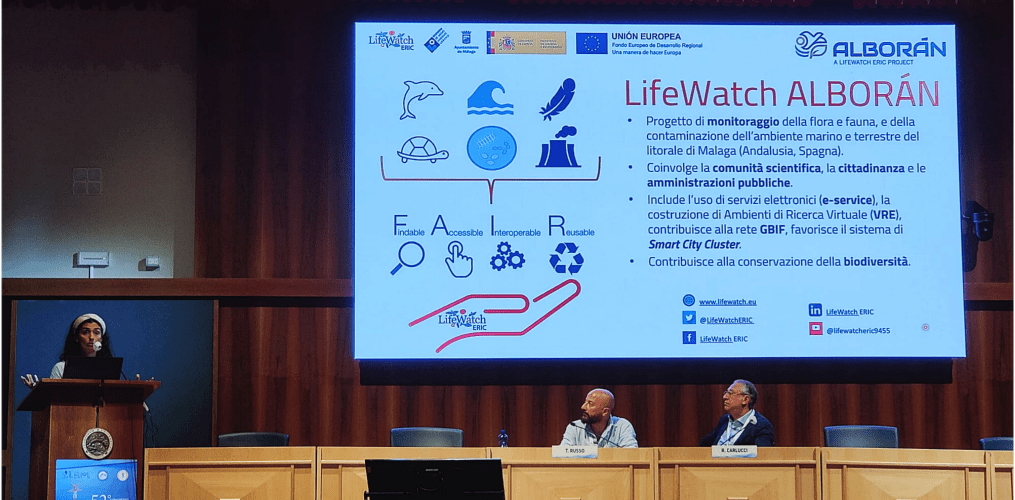
From 12 to 15 June, the 52nd Congress of the Italian Society for Marine Biology (S.I.B.M.) took place. The Science Department at the University of Messina hosted it a few steps away from the Strait of Messina.
Alessia Scuderi, our Marine Megafauna Scientific Assistant, contributed an account of the Alborán project. Her ‘Cetaceans and maritime traffic in the Strait of Gibraltar: difficult but possible coexistence‘ presentation explored the vulnerability of species streams.
The LifeWatch Alborán project monitors flora, fauna and pollution of the marine and terrestrial environments, protecting and promoting biodiversity. The project is also highly inclusive and participatory, involving the scientific community, citizens and public administrations. It focuses on the Málaga coast in Andalusia, Spain.
The role of LifeWatch ERIC in Alborán is to provide electronic services and the construction of a Virtual Research Environments that contribute to the Global Biodiversity Information Facility network and promote the Smart City Cluster.
The SIBM congress – which featured personalities such as the Rector of the University of Messina, Salvatore Cuzzocrea, the Director of Biomorph, Sergio Baldari; and the Director of Chibiofaram, Sebastiano Campagna – was structured around four themes:
- Extreme environments: new frontiers, resources and threats
- Possible biotechnological applications of marine organisms: from bioactive molecules to bioremediation
- History of Italian marine biology, and
- Vulnerability of species, habitats and resources in the coastal marine environment.
The Italian Society of Marine Biology is a Not-For-Profit organisation, founded in 1969, dedicated to the protection and enhancement of nature and the environment, with particular emphasis on study and scientific research in the marine and coastal environment.